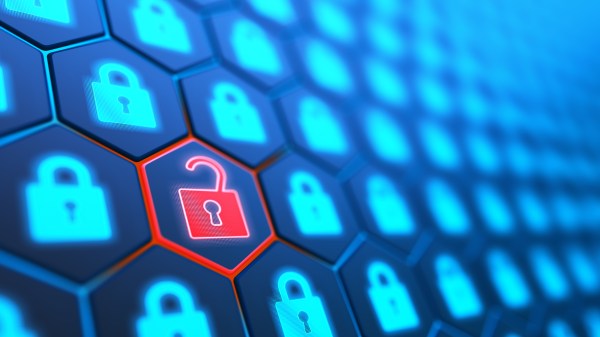What would you do if one day your most sensitive information became vulnerable due to advancements in technology? This is a significant question that many agencies, organizations, and individuals are currently grappling with, especially considering the rapid development of quantum computing. Understanding the implications of this technology is crucial, not just for businesses, but for national security as well.

This image is property of cyberscoop.com.
The Rise of Quantum Computing
Quantum computing represents a monumental leap in computational power. Unlike classical computers that process information in bits (0s and 1s), quantum computers utilize qubits, which can exist in multiple states at once. This property allows them to perform complex calculations at speeds unimaginable with today’s traditional computing technology.
The Threat to Cybersecurity
You might be wondering how quantum computing poses a threat, particularly to cybersecurity. The primary concern revolves around encryption. Today’s encryption methods, which underpin the security of sensitive data—from personal banking to national security—rely on the computational difficulty of specific mathematical problems. For instance, RSA encryption, a widely used standard, becomes virtually breakable through quantum algorithms like Shor’s algorithm. Essentially, a sufficiently powerful quantum computer could decrypt vast quantities of protected information in a fraction of the time a classical computer would require.
As quantum technology progresses, the urgency to fortify our cybersecurity measures becomes increasingly paramount.
Legislative Response: The National Quantum Cybersecurity Migration Strategy Act
To address these rising threats, a bipartisan group of senators has introduced legislation aimed at strengthening the United States’ defenses against potential quantum computing vulnerabilities. This bill, known as the National Quantum Cybersecurity Migration Strategy Act, aims to establish a roadmap for federal agencies in dealing with quantum-related cybersecurity challenges.
Key Objectives of the Legislation
The primary goals of this legislation include:
-
Developing a Comprehensive National Strategy: The bill mandates the creation of a cohesive national strategy to tackle the cybersecurity implications posed by quantum computing technologies.
-
Pilot Programs for Quantum-Safe Encryption: Each federal agency will be required to conduct pilot programs focused on implementing quantum-safe encryption measures, ensuring that they are not left vulnerable to quantum attacks.
-
Establishing Standards: The legislation seeks to define what constitutes a “cryptographically relevant quantum computer” and provide guidelines for agencies to assess their current encryption needs.

This image is property of cyberscoop.com.
Enacting Change: The Role of Federal Agencies
Federal agencies play a critical role in implementing this legislation effectively. Each agency will be tasked with evaluating its current cybersecurity posture and determining the necessary steps to transition to post-quantum cryptography.
Agency Assessments and Measurements
As part of the national strategy, agencies will need to conduct:
-
Risk Assessments: A thorough analysis of systems that could be vulnerable to quantum attacks should be conducted. This includes identifying data that require strong protection and determining the risk level associated with current encryption methods.
-
Migration Plans: After evaluating risks, agencies must develop detailed migration plans for moving to quantum-resistant encryption protocols. This might involve upgrading existing IT infrastructure or adopting entirely new systems designed with quantum security in mind.
-
Measuring Success: To ensure that the migration is effective, agencies will need tools to measure the progress of their transitions. Any potential gaps in security must be addressed in a timely manner.
Importance of Collaboration
For such a comprehensive plan to be successful, collaboration among various sectors will be essential. Federal agencies must not only coordinate with each other but also work alongside private sector experts and academia to ensure that they remain on the cutting edge of quantum cybersecurity solutions.
The Role of the Subcommittee on the Economic and Security Implications of Quantum Science
The legislation leans on the expertise provided by the Subcommittee on the Economic and Security Implications of Quantum Science (ESIX). This subcommittee will serve as a guiding body for developing the national strategy and ensuring that it aligns with broader national objectives regarding technology and security.

This image is property of cyberscoop.com.
National Security Implications
You may ask how this legislation directly relates to national security. The integrity of sensitive data—ranging from defense strategies to personal information of citizens—is critical for maintaining a secure state. By enacting these measures, the federal government aims to protect national interests and enhance the overall cybersecurity posture of the country.
Maintaining Technological Superiority
Quantum computing isn’t just an American challenge; other nations, particularly China, are heavily investing in this technology. One of the motivations behind this legislation is to ensure that the U.S. maintains its technological edge in the global arena. Proactive measures can bolster national defense against potential adversaries who might exploit quantum advancements for cyber warfare.
Quantum-Safe Encryption: What Does It Mean?
Leveraging post-quantum cryptography means moving towards new cryptographic algorithms that remain secure even in a world with powerful quantum computers. These may involve more advanced mathematical techniques that classical computers cannot efficiently break.
Characteristics of Quantum-Safe Encryption
-
Resistance to Quantum Attacks: The primary hallmark of quantum-safe encryption is its ability to withstand attacks facilitated by advanced quantum algorithms, such as Shor’s algorithm for factoring and Grover’s algorithm for searching databases.
-
Standardization: The bill encourages the development and adoption of standardized quantum-safe encryption methods, fostering consistency across various sectors and agencies.
Immediate Action is Required
Experts advocate that the time to act is now. Data breaches often result in stolen data being stored for later decryption. Thus, the potential timeframe in which sensitive data could remain vulnerable necessitates swift action.
The Urgency of Migration
Given the warning that quantum computing threats may become real sooner than expected, federally mandated state-of-the-art cybersecurity measures are more than just precautionary—they are imperative for safeguarding critical infrastructure and personal data.
Moving Forward: A Collaborative Effort
It’s clear that the challenges presented by quantum computing cannot be met by any single entity. Involvement from a variety of stakeholders, including federal agencies, private corporations, and academic institutions, will be essential to create an effective quantum cybersecurity strategy.
Engaging with Industry Leaders
Involving industry leaders who specialize in quantum technology will be crucial as they bring unique insights and expertise. Their collaboration can guide the federal government in adopting best practices and implementing innovative solutions that provide quantum-safe environments.
Conclusion: A Collective Responsibility
As quantum technology advances, we all share a responsibility to remain vigilant. Investments in cybersecurity must keep pace with advancements in technology to ensure that personal data and national security remain protected. By promoting legislative measures like the National Quantum Cybersecurity Migration Strategy Act, we can fortify our defenses against the potential challenges posed by quantum computing.
In addition, promoting education and awareness around quantum cybersecurity can empower individuals and organizations alike to take proactive steps in protecting their digital assets. Embracing collaboration, educating stakeholders, and advocating for robust policies will be imperative in navigating this complex and evolving domain.
In facing these challenges collectively, you have the opportunity to be part of the solution, ensuring that the benefits of quantum computing can be realized without compromising security. This isn’t just the responsibility of the government; it’s a shared imperative for everyone in the technological landscape.